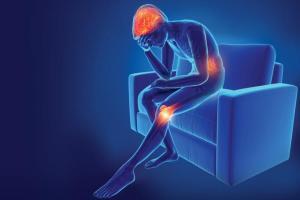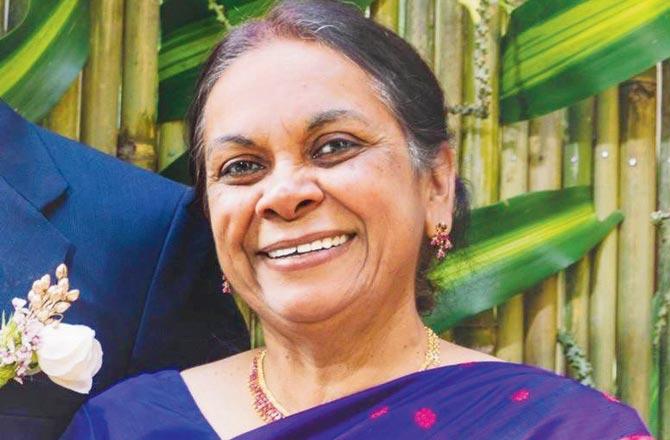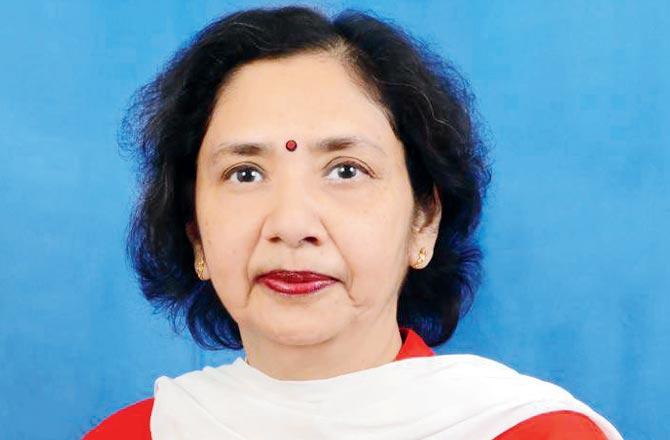Pain can be impeding or even debilitating, but doesn't necessarily have to be endured, say the authors of a new book on pain management

Most of us have spent the better part of our lives thinking of pain as an inevitable by-product of an injury or an ailment. A turn-of-the-century declaration by the United States Congress, which proclaimed 2001-2010 as the "Decade of Pain", however, has played a major role in transforming this perception. Today, pain is no longer perceived by the medical fraternity as only a "physical entity", but as a more complex amalgamation of physical, psychological, social, cultural and spiritual factors. This, say Dr Mary Abraham, a pain management and palliative care specialist at Max Hospital, and Dr Vandana V Prakash, a mental health and behavioural sciences expert, who are also the authors of a new book titled Conquering Pain (HarperCollins India), has had a transformative impact on the way pain is managed and treated.
Understanding pain
ADVERTISEMENT
Pain, as defined by the International Association of the Study of Pain, is both an unpleasant physical and emotional experience — this means that distress is a natural reaction to any kind of pain, the authors say. Even in acute pain, such as pain after surgery or pain due to a fracture, sufferers often become extremely anxious and may even experience panic attacks thinking about the impending pain they will have to bear. When pain becomes chronic and prolonged, there is a far greater impact on the psyche of the sufferer, leading to depression and anxiety.

Dr Mary Abraham
This, in turn, can further aggravate the perception of pain, as pain impulses are more easily propagated to the brain in such patients, thus forming a vicious cycle of pain and psychological distress. Conversely, when an individual suffers from a significant psychological problem that creates strong emotional distress, then even in the absence of any physical cause, the person may experience pain. This pain, caused by immense emotional distress, is termed as somatisation disorder. In either situation, regardless of whether the pain is physical or psychological, the person inflicted with pain, and his/her family feel the impact. "Pain is a biopsychosocial phenomenon, which means that social reasons can not only perpetuate pain, but also directly or indirectly affect pain behaviour. Lack of familial and social support, loss of prestige, giving up of roles, being displaced from an important position in the family, loss of job and fear of unemployment, financial concerns and fear of dependency are all significant stressors. These can have a compounding effect on pain behaviour", the authors explain.
What we get wrong about pain
"The biggest myth surrounding pain is that certain types of pain — such as the pain that follows surgery and cancer treatments — have to be endured and cannot be relieved. This is not true. Several types of pain can be relieved with the help of medication and techniques. Even physiological pain, such as the pain a mother experiences during labour, can be relieved to facilitate comfortable and smooth childbirth," the authors explain. A large part of patients' reluctance to treat pain stems from another prevalent misconception that all pain-relieving medicines are harmful.

Dr Vandana Prakash
"While it is true that some analgesics can harm the body, especially the kidney, liver and the gut when taken for longer durations, there are many which, when given in appropriate doses, cause little or no side effects," the authors explain, emphasising on the fact that untreated pain can affect the sufferer adversely, not only in terms of their physical health, but also their functionality and their quality of life. "There's also a widespread fear of narcotic or opioid drugs, such as morphine, which are believed to be addictive, despite the fact that in certain conditions, including advanced cancer, nearly 75 to 90 per cent of patients experience severe pain that can only be relieved with strong analgesics such as morphine," the authors add.
The use of these medicines must not be withheld, they add, explaining that addiction is influenced by genetic, psychosocial and environmental factors, which have to be ruled out before starting the drug. When administered in appropriate amounts, they will not lead to addiction. The authors stress the importance of caregivers understanding that the sufferer is not "faking" the pain, especially in the case of mental pain. Emotional distress is real and the pain experienced is actually felt. "There is a crying need for a major attitudinal shift where the caregivers understand that the one inflicted by pain needs emotional, physical and social support. Instead of looking down on sufferers, caregivers must encourage them and provide the necessary psychological support to enable them to recover," both authors remind us.
How can you help?
In many cases, healthcare professionals are entirely focussed on treating the underlying disease causing pain. It is important to adopt a holistic approach that treats the person rather than the disease. This approach is termed as total pain management.
- Understand that the relief of pain and consequent suffering is a fundamental human right. It is the obligation of all healthcare providers to extend the necessary relief and focus on improving the quality of life of the sufferer.
- Regardless of whether the pain is physical or psychological or both, those inflicted by it need acceptance and emotional solace from their families. The sufferers' family and friends must play their role in assuring the sufferer that (s)he is no longer redundant and is still capable of contributing to the family and society. Despite the pain and disability, encourage them to undertake activities that (s)he is still capable of doing. Applauding even small efforts can inspire confidence to undertake more difficult tasks. Failures should not be extensively discussed but used only as a stepping stone for striving towards getting better.
- Assure the person that pain does not need to be borne and endured and that it can be relieved to a large extent. This can give a tremendous boost to the patient's morale and instil confidence and hope.
- Be willing to listen to the person in pain unconditionally and with a non-judgmental attitude. Remember, patients with cohesive and understanding families tend to recover faster than those bogged down by a hostile family and environment.
Catch up on all the latest Mumbai news, crime news, current affairs, and also a complete guide on Mumbai from food to things to do and events across the city here. Also download the new mid-day Android and iOS apps to get latest updates
 Subscribe today by clicking the link and stay updated with the latest news!" Click here!
Subscribe today by clicking the link and stay updated with the latest news!" Click here!







